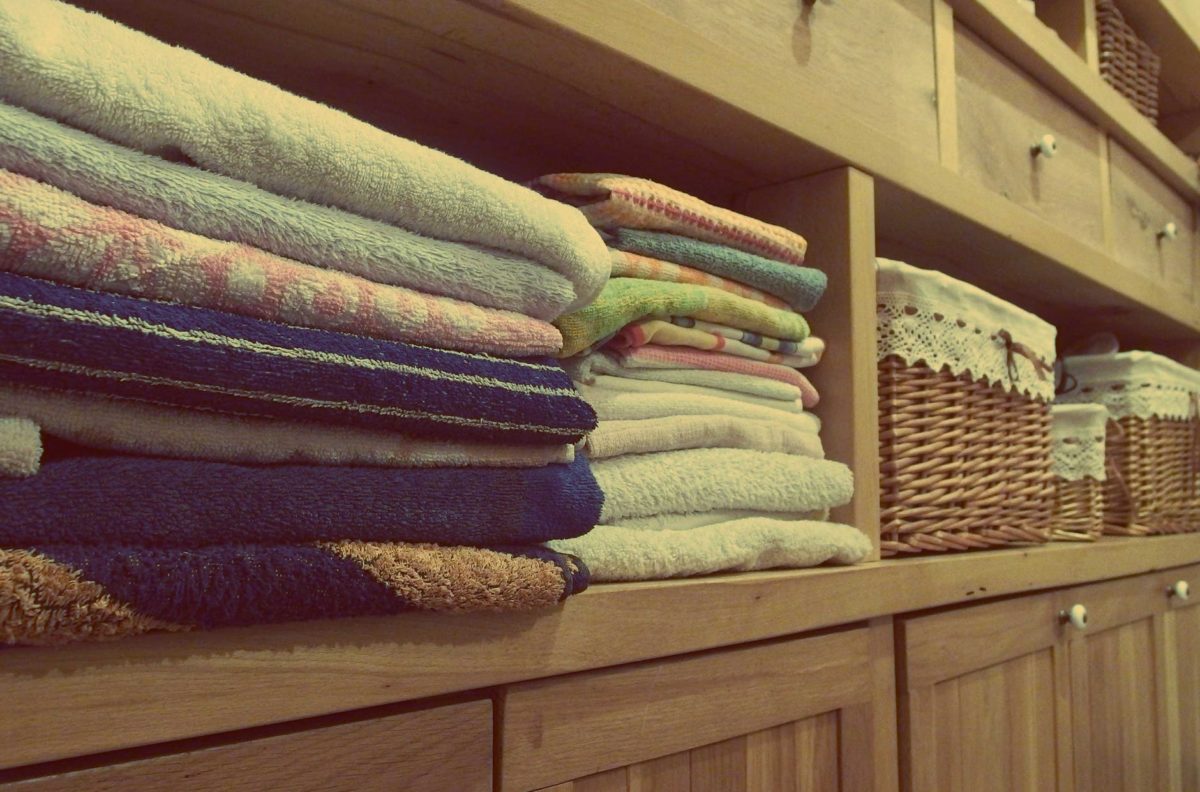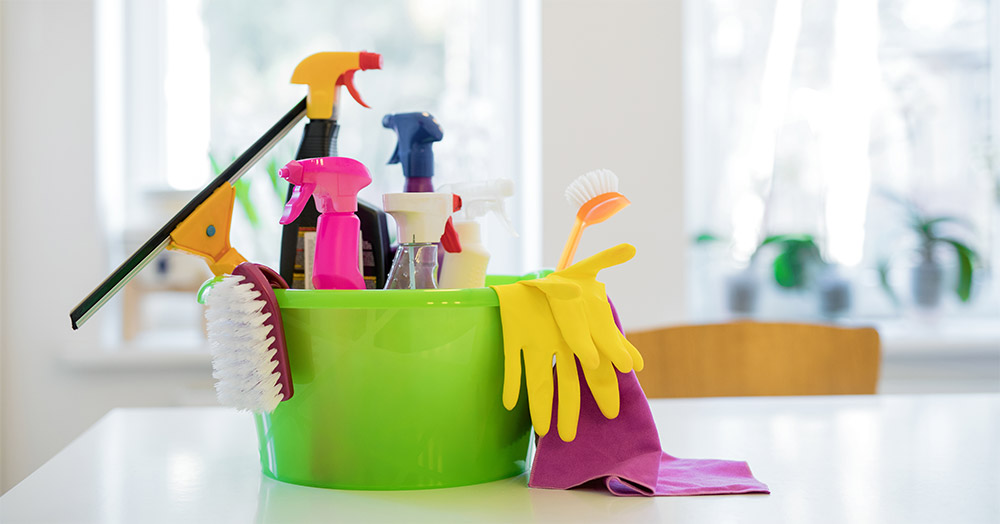How To Sanitize Your Laundry During COVID-19
Everyone is worried about the Coronavirus right now and we are all looking for ways to protect our families and ourselves. Social distancing and washing your hands have been two of the most common bits of advice to prevent infection, but you may want to think about disinfecting your laundry.
While handling infected laundry is not a major risk, there is the potential for infection. When you go out for essential errands or exercise, your clothes could pick up the virus and carry it home. If a person in your home is ill, you will want to be extra careful when handling their clothes and bed linens and you should take steps to disinfect anything they come in contact with.
Even outside a major pandemic, these are good practices for preventing bacterial infection and for protecting against viruses that cause illnesses like the seasonal flu and the common cold. With the following information, you can disinfect all of your clothing and prevent viral and bacterial infections in your home.
Types of Disinfectant
When it comes to laundry disinfectants, you are looking for agents that are effective at killing bacteria and you want products that are safe for use on fabrics, whether that’s the soft terry cloth of your favorite loungewear or the spandex of athleisure. In this section, we are going to look at four types of laundry disinfectant and how they can be used.
Phenolic Disinfectants
Phenolic compounds are the active ingredient in a range of common household disinfectants. When used with warm or hot water, a phenolic disinfectant can effectively kill bacteria, viruses, and fungus. They can be added to the rinse or wash cycle in your laundry machine and they are safe for white and colored fabrics.
Pine Oil Disinfectants
Pine oil is a natural antimicrobial and it can be found in several common cleaning products. It can be good for cleaning both light and dark fabric and it can work on a variety of viruses and bacteria. If you are using it to disinfect laundry, it should be added at the beginning of the wash cycle and you need to use a cleanser that is at least 80% pine oil for it to be effective.
Liquid Chlorine Disinfectants
Commonly known as chlorine bleach, this is one of the most effective disinfectants available. It kills a wide range of germs quickly and it can be used to disinfect white laundry. It can be effective in hot, warm or cold water. Sodium hypochlorite is a common household bleach that can be used in concentrations of 5.25-6.15 percent to kill bacteria and viruses on laundry. However, the strength of chlorine bleach solutions can vary greatly, so you need to make sure to read the label before using it as a disinfectant.
Along with only being safe for white laundry, you should also realize that there are fabrics that can be damaged by different types of bleach. This is another reason why it is so important to read the label and check the care instructions on your laundry before using a disinfectant.
Quaternary Disinfectants
These are products that use quaternary ammonium compounds as a disinfecting agent. They are very effective at all water temperatures, but they are not as widely available as some of the other disinfectant products. Some quaternary disinfectants can be used to kill viruses and bacteria on laundry, but there are some that may be harmful to fabrics. It is important to read and follow the instructions before adding a quaternary disinfectant to your laundry machine.
Cleaning Bed Linens for a Sick Person
When someone in your family is sick, their bed linens may need to be cleaned regularly. However, it is important to exercise caution when handling the bed linens of a person who is sick. The following are a few tips for keeping your sick family member’s bed clean.
- Extra Sheets: The first tip is to keep an extra set of sheets handy so you won’t have to find them when the bed needs to be changed. This will save you the hassle if the person vomits in bed or sweats through the sheets and they need to be changed in a hurry.
- Urine, Feces, and Vomit: These are all protein-based stains, so treating them is similar across the board. Once you have learned how to remove vomit from fabric, you should be able to work on the other stains as well.
- Blood Stains: This is also a protein-based stain, but cleaning blood is tougher because there is a greater potential for staining. The number one tip when it comes to removing blood stains is to get to work on the stain as soon as possible.
- Ointments and Creams: Various creams and ointments can be helpful when dealing with an illness, but they can leave stains on bed linens and clothes. This is another case where you want to treat the stain as soon as possible. If you can, use something to scrape as much of the substance off the fabric before you start washing. You should also avoid rubbing the cream or ointment into the fabric.
Tips for Disinfecting Laundry
With proper precautions, you can disinfect laundry and prevent the spread of infection. Beyond using an effective disinfectant and washing laundry in hot water, there are some steps you can take to make sure you are using safe practices for handling and washing laundry.
- Always follow the instructions of the cleaning products you use.
- Wear rubber gloves when handling the laundry of a person who is ill.
- Hold the laundry away from your body and do not bring it up near your face.
- If a person is ill, wash their laundry as soon as possible.
- Avoid cross-contamination by using a separate laundry basket or hamper for the clothes and bed linens of an ill person.
- Germs can linger in your washing machine. You should periodically clean your washer. If a person was recently ill in your home, consider cleaning the washer once they are better.
While there are bigger risks of infection than your laundry, it is better to be safe than sorry. There is potential for viral and bacterial infections to spread from infected items. And, the risk increases if you have an ill person in your home. With the tips mentioned here, you can disinfect your laundry and reduce the risk of spreading infection in your home.
Did you find these tips helpful? Let us know in the comments below!
 Rae is a graduate of Tufts University with a combined International Relations and Chinese degree. After spending time living and working abroad in China, she returned to NYC to pursue her career and continue curating quality content. Rae is passionate about travel, food, and writing for Yummie.
Rae is a graduate of Tufts University with a combined International Relations and Chinese degree. After spending time living and working abroad in China, she returned to NYC to pursue her career and continue curating quality content. Rae is passionate about travel, food, and writing for Yummie.


Interesting article -thank you. It would be so helpful to have a short list of commonly available cleaners in each of the categories mentioned.
I like the article, very informative, however it would be very helpful if you could also publish the brand names of the disinfectants you talk about. When I go to the store, I am looking for name brands that are on the shelves and and are readily available for purchase, such as the Quartenary disinfectant, the Phenolic Disinfectant, and possibly he Pine Oil Disinfectant. However I could probably figure that you are talking about PineSol?
Which brands?
Hi Meredith! I’ve asked the contributing author for this info. I will tell you as soon as I know!